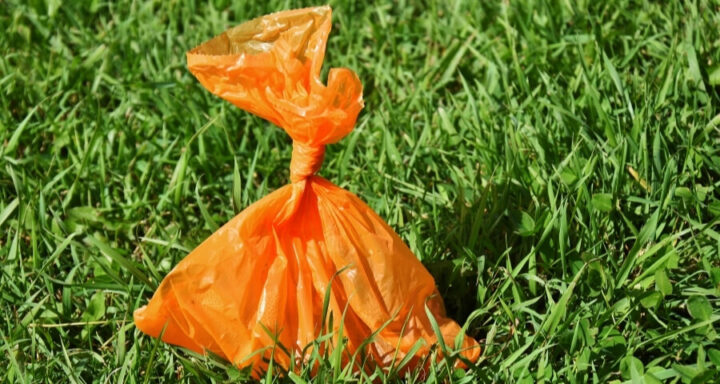As it turns out, even though they’re smaller, cuter and full of joy, it doesn’t exclude them from being contributors to the global crisis of climate change.
With Australia’s estimated 5.1m dogs, excrement alone piles up to the weight of the Sydney Harbour Bridge, every month! Not only is that a lot of poop, but it’s usually packaged up in plastic bags, which can take up to 450 years to decompose. That means that the first plastic poop bag to be invented is still sitting in landfill!
When poop is added to general waste landfill, it produces methane, a greenhouse gas. Earth already produces natural greenhouse gases to benefit its systems, but from human intervention, the demands of population and the extreme supply of agriculture, these emitted gases have exceeded what our planet can cope with. This causes the gases to become trapped in our atmosphere, forcing the planet to overheat – commonly known as climate change.
So, what can you do to be a sustainable pet owner and reduce your pet’s environmental paw print? Biodegradable bags are a great start, but the doo-doo still releases methane if put into general waste, so an absolute eco-friendly alternative is composting! If you have a backyard, you can use your pet’s droppings to care for your garden. Some councils even encourage flushing your pet’s poop down the toilet, but be sure to check with your local council first, as each council has a different preference.
For cats, there are eco-friendly litter options as well, such as wood shavings or recycled paper. And it doesn’t stop there! There are plenty of other ways to help your pet be a green do-gooder.
If you’re thinking about getting your pet a toy, consider opting for toys made of materials, such as sustainably-sourced rope, jute or hemp, rather than plastic. Not only are these materials biodegradable, they’re often more durable!
Other big contributors to climate change are the emissions released from transporting your pet’s food from its manufacturing site to your home. A simple way around this is to find a pet food with ingredients sourced more locally (but ensure before purchasing that it is indeed a complete and balanced diet). A few brands even make their pet food packaging recyclable!
Where possible, avoid toxic grooming products. It’s been confirmed that products containing sodium lauryl sulphate (SLS) or synthetic fragrances negatively affect marine life by toxifying the water. Instead, opt for organic and non-toxic grooming products.
With a few small but good-minded changes, together we can mitigate our environmental impacts to contribute to a healthier, happier planet with happier, healthier pets.



